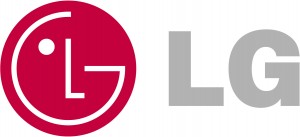This is a sponsored post on behalf of British Gas. To find out more about sponsored content on Technology Bloggers, please visit our Privacy Policy.
Smart meters are a clever new technology, that can help to improve the way your energy usage is monitored and recorded, but many people know very little about this new bit of tech.
Smart Meters
Smart meters are a technology that are transforming our understanding of energy, and how we use it. What they allow you to do is to work out how much energy you are using, and on what, much better than ever before.
Smart meters measure gas and electricity usage in your home, by replacing your old electricity and gas meter, with an all new one.
For more information, watch this useful British Gas video about smart meters 🙂
The Benefits
This new energy meter allows you to see much easier how much electricity you are using, due to their handy in-home display, which puts you in control of your energy.
Thanks to smart meters you can see in real time how much energy you are using. You can check this on its user friendly energy monitor, either online or through our smartphone app. So if you have your kettle and TV on and you are using 1KW, then you know what those appliances use.
According to British Gas this gives you the potential to reduce your bills by around a fantastic 10%! This is because thanks to smart meters, you can see what energy you are using, and therefore can start to make small changes to use less and save money on your bills.
Another handy thing about smart meters is that they report wireless, so there is no longer a need (or the hassle!) for you or an engineer to take readings. Furthermore, the readings sent will now be 100% accurate, for total piece of mind.
Installation
In the UK British Gas are aiming to provide smart meters in all homes in the near future – meaning that everyone can benefit from this new technology.
 They are starting the roll out now, with 120,000 homes in the UK already having a smart meter. This will grow to around 1.5million by the end of 2012.
They are starting the roll out now, with 120,000 homes in the UK already having a smart meter. This will grow to around 1.5million by the end of 2012.
Because they are so useful, the UK government has mandated that all households will need to have smart meters installed by 2019.
British Gas have already started to introduce smart meters to homes across the UK, in order to make sure that we are ready in time for 2019.
When your home is ready for an upgrade, British Gas will contact you and their highly trained Smart Energy Experts will change your meters, and explain how to use your energy display and save on your bills.
Head over to British Gas’s website and Facebook page to find out more about smart meters and how you can get yours installed!
What do you think about the new meters which could save you money? Do you have any questions on anything I haven’t covered about smart meters?

